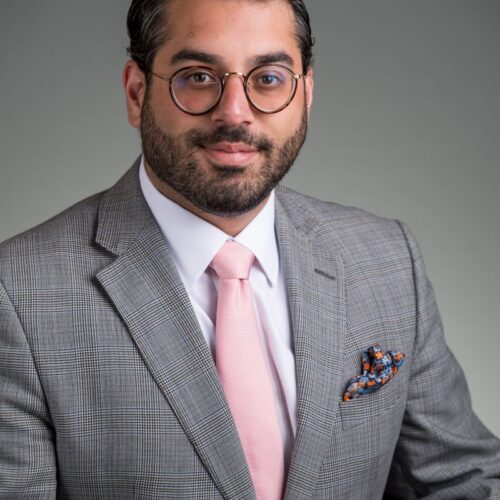
Raheem Kassam
2018 Lincoln Fellow
What is your current position?
I am self employed.
What inspired you to choose this career path?
I don’t like to have to answer to anyone.
What are you currently working on?
Several projects, including a few books about the future of Western civilisation.
How did you hear about the Claremont Institute?
From Brian Kennedy
What is your fondest memory of the Claremont Institute?
Meeting fascinating people.
There are all sorts of educational programs out there for current and rising conservative professionals. What do you think makes the Claremont Institute’s Fellowships unique?
I think the element of camaraderie, but while still maintaining the debate and challenging nature of the programme.
If you could have a fireside chat and drink with an American Founder, or any great thinker, who would it be, why, and what would you order and discuss?
It would have to be Benjamin Franklin for me, because I believe he both saw the inevitable pitfalls of the system of the Republic, and had a great respect for my preferred system: monarchy.
Who was more important for their time, George Washington or Abraham Lincoln? Why?
Washington. I believe there was no one else like him and hasn’t been. But I think there may have been others who could have done what Lincoln did.
Looking back on history, from your unique perspective, in which one of the original 13 colonies would you have wanted to live and why?
Virginia. It was God’s country.
What would the artifact be, if you could hold one piece of history from the early founding of our country and why?
I think perhaps one of the rifles that shot Boston rebels.
What qualities do you believe will make an impressive statesman in this century and why?
The ability to either tune out or withstand criticism and pressure. There is no greater challenge for any public figure today. It can either grind you to a halt, or cause you to rise above it.
What do you believe is the biggest challenge facing educators?
The media.
What do you believe is the biggest challenge facing students?
Not having an identity or knowing their generation’s aspirations.
What is the greatest challenge facing the United States today?
Whether it chooses humanity in the form of ordinary people, or the expert classes which will inevitably lead to artificial intelligence and the erosion of human kind as a species.
What are the defining differences, as you see them, between the United States and Europe?
More than anything I believe the two continents have fundamentally different ideas of what “culture” is. In the U.S. the idea is dominated by popular culture. In Europe, a greater value is placed (or at least was until recently) on architecture, history, and civilisational values.
What are the defining similarities, as you see them, between the United States and Europe?
The trajectory towards methods of governance which empower ordinary peoples.
What would the subject be, if you were to write an editorial on one pertinent topic and why?
The importance of knowing where we’re going as a species, and the pitfalls (almost all of them currently) which are created by not having a goal.
What did you discover were the greatest challenges and/or rewards in writing your recent books?
Challenges were basic: meeting deadlines, etc. The rewards were enormous: learning to speed read, research intensely, pick up on missed narratives in news reports, and being able to weave a common thread between things that may at first seem unrelated.
What regimen do you follow when writing a book?
Write drunk, edit sober.
What books are you currently reading?
The Virtue of Nationalism, The Populist Explosion, The Conservative party from Peel to Churchill.
What book, film, or speech has left a lasting impression with you and why?
Letters to a Young Contrarian by Christopher Hitchens was perhaps the most formative for me, and led me away from the flirtations of the left that many young people experience. It taught me the importance of contrarianism, not for the sake of argument or “progress”, but for the survival and implementation of evidence and the policies that come off the back of it.
Do you have a favorite quote and if so would you share?
Currently my favourite is from Lord Byron’s story called “Childe Harold’s Pilgrimage.” It goes: “There is the moral of all human tales;” “Tis but the same rehearsal of the past, First Freedom, and then Glory — when that fails, Wealth, vice, corruption, — barbarism at last. And History, with all her volumes vast, Hath but one page”.
What is the most distinctive attribute/character of the people in the country where you grew up that you genuinely admire?
Fighting for the underdog.
What is your favorite cultural/recreational pastime (or hobby) and why?
Bottles of wine and good conversation. You laugh, you learn, and most importantly, you get to the truth (in vino, veritas!)

